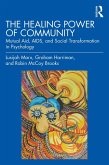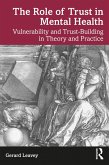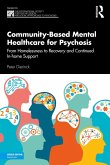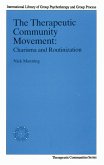Democratic therapeutic communities have been set up all over the world, but until now there has not been a manual that sets out the underlying theories, and describes successful practice. Based on their own substantial experience and expertise, the authors of this new textbook explain how to set up and run modern therapeutic communities as effective evidence-based interventions for personality disorder and other common mental health conditions.
Including detailed templates and practical information alongside a wider historical context, this encyclopaedic handbook will enable clinicians to develop and implement a democratic therapeutic community model with confidence. Highlighting the importance of belonging to a wider community, this book also shows how to ensure the needs of patients are considered and met, and that patients themselves can see in detail what this approach entails. This is an invaluable resource for clinicians and service commissioners working in the field of recovery from personality disorder, as well as those working in mental health and healthcare. This book also provides a useful model for professionals working in prisons and the justice system, long-term drug and alcohol rehabilitation and education, and students of group analytic, psychotherapy, and counselling courses.
Including detailed templates and practical information alongside a wider historical context, this encyclopaedic handbook will enable clinicians to develop and implement a democratic therapeutic community model with confidence. Highlighting the importance of belonging to a wider community, this book also shows how to ensure the needs of patients are considered and met, and that patients themselves can see in detail what this approach entails. This is an invaluable resource for clinicians and service commissioners working in the field of recovery from personality disorder, as well as those working in mental health and healthcare. This book also provides a useful model for professionals working in prisons and the justice system, long-term drug and alcohol rehabilitation and education, and students of group analytic, psychotherapy, and counselling courses.
Dieser Download kann aus rechtlichen Gründen nur mit Rechnungsadresse in A, D ausgeliefert werden.









